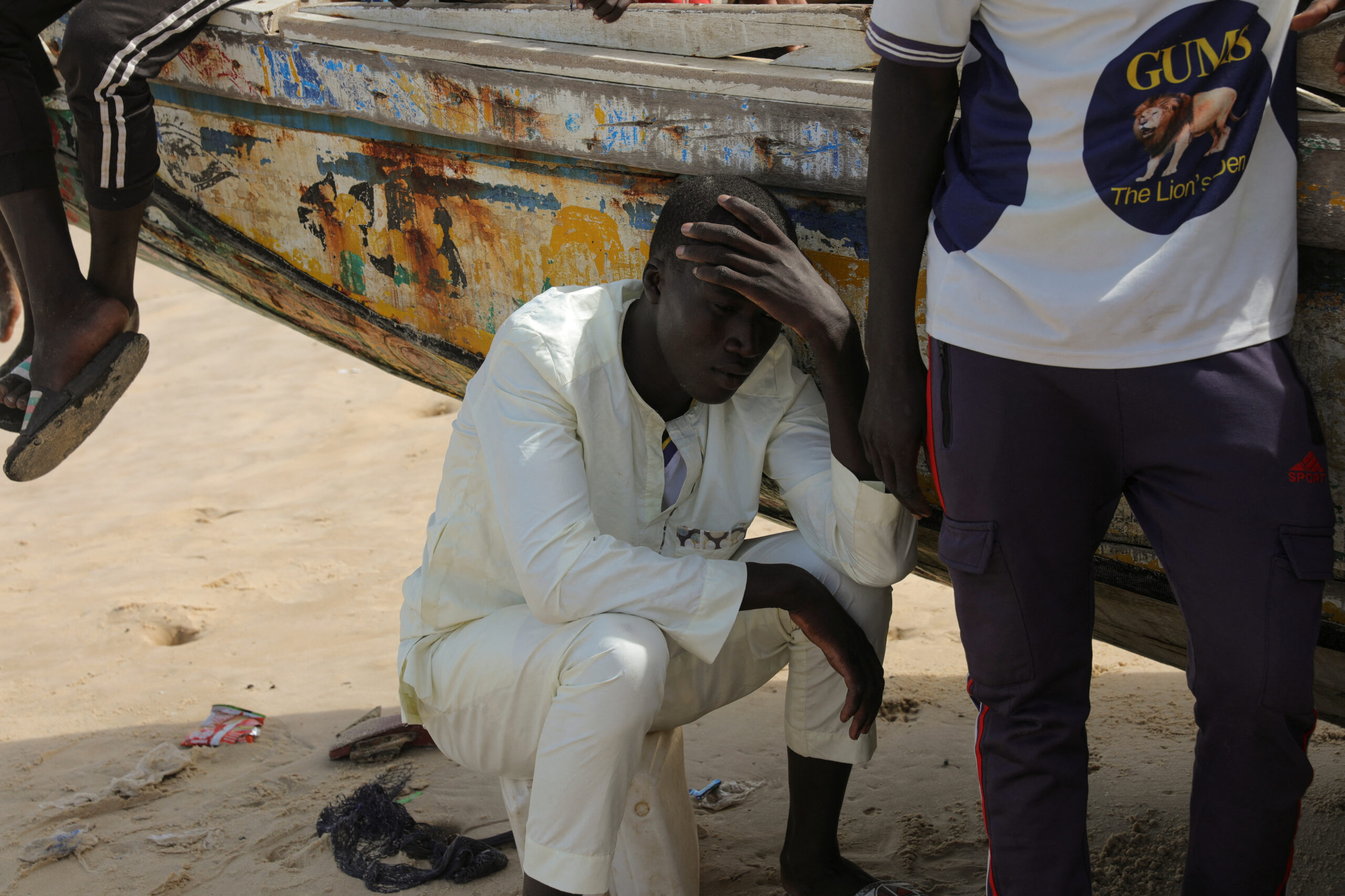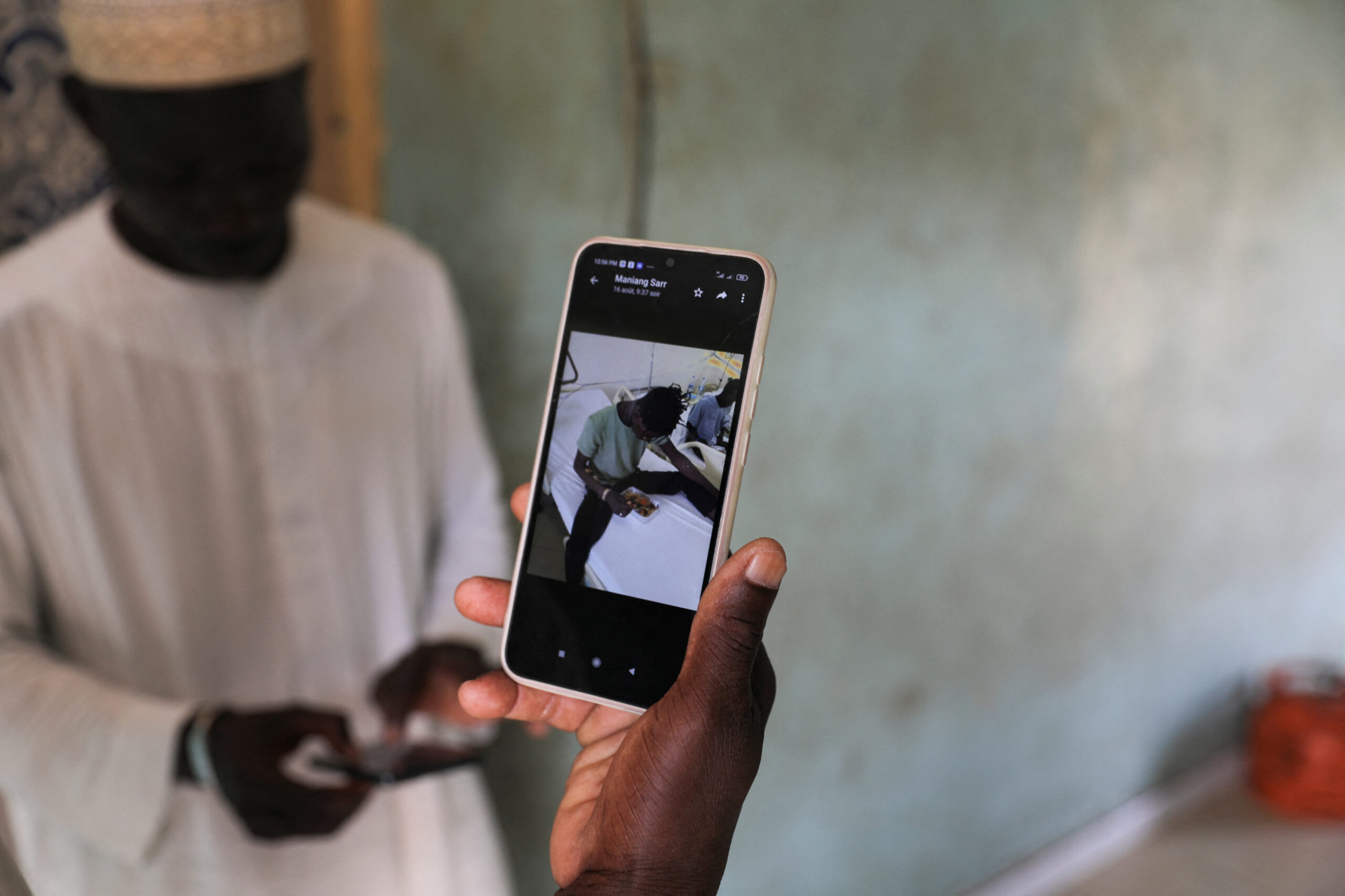By Ngouda Dione and Joel Kouam
FASS BOYE, Senegal (Reuters) – The brightly painted boats in the Senegalese fishing village of Fass Boye lay idle on Friday. The sound of wailing drifted from households out to the empty streets. Residents walked from home to home offering condolences to mourning families.
More than 100 people boarded a fishing boat there on July 10, bound, they hoped, for Europe. Like so many others that brave hundreds of miles of ocean each year, this one never arrived.

On August 15, the vessel was found by a Spanish fishing boat drifting off the island archipelago of Cape Verde, hundreds of miles off course. About 38 were rescued, but more than 60 are missing, presumed dead. Most are from Fass Boye.
ALSO READ: Senegal’s presidential race thrown open after incumbent rules outstanding
It is not clear what went wrong, but it marks the latest in a string of disasters in recent years in the ocean off West Africa that thousands try to cross annually to reach wealthier Europe. No one knows the full death toll because boats often leave without a word and vanish without a trace.
At least 15 people drowned when a boat carrying migrants crashed off the coast of Senegal’s capital Dakar in July.
Fass Boye made up of low-slung houses on a wild stretch of coastline 60 miles (100 km) north of Dakar, had been waiting weeks for word of the boat’s arrival. Now it is trying to understand the colossal loss.
Some have been told that their loved ones survived, but most have not. Anger at what locals see as the government’s inaction has led to protests.
Fass Boye gardener Pape Boye lost a nephew.
“They stayed more than a month at sea. His provisions were finished. Those whom God has saved are few, most are dead,” he said while walking on the beach near his home.
Even for those whose relatives did not die, the relief was tainted. Ibrahim Sarr’s son survived the ordeal. He showed Reuters a picture of him that a doctor in Cape Verde sent: sitting up in a hospital bed, skinny and unwell. Sarr is desperate to speak to him but says the doctors won’t allow it.
Meanwhile, Ibrahim’s nephew died, and so did some of his cousins.
“It’s all the same family. We cry to God, not to men. Because no man can do anything about it.”
‘LET US MOURN’
Migrating to Europe from West Africa is a life-threatening pursuit, whether on trucks through the Sahara Desert or on boats across the Mediterranean Sea. Migration experts say the route to Spain’s Canary Islands has become more popular because passage through Libya has become more heavily policed.
Most try the crossing in summer because the waters are less choppy, although storms in recent weeks have sent waves crashing along Senegal’s coast.

That has not stopped the traffic, which is caused in part by dwindling fish stocks that have squeezed the local economy. Residents say international trawlers overfish and the small Senegalese boats can’t compete.
“Most of them fought to have canoes here and fulfil themselves. Look at these canoes, they belong to them,” said Ida Diop, a fisherman who lost his nephew. “They got nothing from the sea. The state destroyed the sea.”
ALSO READ: Senegalese entrepreneur creates first locally made surfboards
Residents started to get worried in late July. Ten days passed, then 15. They contacted relatives in Spain and Morocco to see if they had heard anything. One family travelled hundreds of miles to neighbouring Mauritania on a lead that came to nothing.
A woman who lost a brother and asked not to be identified said that the community alerted the authorities but that they did nothing. Senegal’s ministry said that they had met with families and will arrange for the return of the dead and the survivors.
Violence broke out after news spread that the boat had been found. Public buildings were burned and the main road was blocked by charred debris.
“When we alerted about our brothers being lost at sea, no one listened to us. Now that they are dead,” said the woman. “It’s futile. Let us mourn our dead.”


